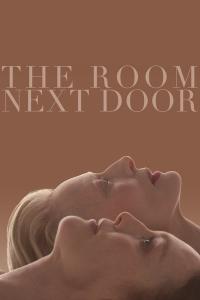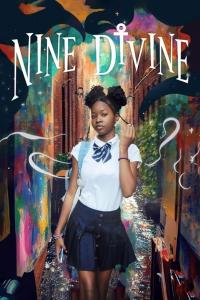Torrent details for "[americana] (2023) Hannah Aldridge - Dream of America [FLAC] [DarkAngie] " Log in to bookmark
Controls:
Language:
 English
EnglishTotal Size:
196.78 MB
Info Hash:
373a084224b2a7af6fdc0caada631db1cc8d9fea
Added By:
Added:
04-07-2023 04:32
Views:
341
Health:

Seeds:
5
Leechers:
0
Completed:
30
Review:
Southern Gothic or Americana Noir have been bandied around as descriptions of Hannah Aldridge’s past releases, but such tags barely scratch the surface of her latest album. Dream of America is her first for the Swedish indie label Icons Creating Evil Art, which finds her working with Australian producers Lachlan Bryan and Damian Cafarella (who also play on the album) and Swedish engineer Frans Hagglund. It opens with the measured slow rhythm of the violin-shaded Dorero, titled after a character in the Root Of Evil, a podcast about the unsolved 1947 gruesome murder of aspiring actress Elizabeth Short, dubbed The Black Dahlia. Dorero was the mother of Steve Hodel, a private investigator who concluded that his surgeon father, George, was the killer. However, at one point, she too was a suspect, hence the line “I take back everything I said Dorero/I don’t believe a word I read about you/Well, I stumbled in to find/That you’re not guilty of any crime”. The song itself is about a chaotic childhood and associated trauma, sung from the perspective of a little girl growing up in the midst of chaos (“‘Cause I was a lonely girl/And you were the kind of woman/That I didn’t know/I needed at the time/I woke up to find Dorero/Watching over me/She was everything/They said I left behind”). The miasma continues to thicken with the conspiratorially whispered Portrait Of The Artist As A Middle Aged Man, a Bryan/Cafarella cover from Some Girls (Quite) Like Country Music album. The title’s a pastiche of novels by James Joyce (Young Man) and Joseph Heller (Old Man). Still, Aldridge’s touchstone for her interpretation was Hunter S. Thompson and the experience of driving through the Mojave desert, recasting the image of the driver of a Camero and riding shotgun “a woman that he could never understand/She’s got her feet up the dashboard while he fumbles for the gears” though a Hollywood noir vision of Bonnie and Clyde. There’s a cinematic expansiveness too on the slow-walking country colours and guitar twang of Beautiful Oblivion, a number that embraces death or at least nothingness (“Tell the world that/I just blew out like the sun/And in the end/I was a beautiful oblivion”) as an escape from pressure, chaos or the feeling of just being lost (“Morning caved right in/Through the cracks of my hands/In a maze of light/The fever comes and goes/Like a ghost in my head/I wake up reaching out/For a face I can’t ever recognize”). Tommy Detamore on pedal steel and her father Walt on 12-string, having debuted on her 2021 live shows, the country soulful Unbeliever, Aldridge sounding at her best early Lucinda, now stands as an album highlight, a song addressing breaking from her fundamentalist Christian upbringing (“it’s not that I don’t want to see the light/It’s not like I ain’t lookin for the truth/I thought I saw it flicker once or twice…People say you gotta give it time/So I gave it all the time I ever owned/I thought I had it coming down the line/But I was never the receiver”), the line “1000 different faces pass me by/And I see my own reflection in every stranger’s eye” speaking perhaps of loss of faith on a wider scale. Unusually, the title track (composed along with Bryan and Cafarella) is a brief instrumental of distorted sounds, giving way to another from the 2021 tour, The Fall, a dark, moody, slow-building co-write and duet with Ben Glover that again speaks to uncertainty (“Maybe I/Was looking for a sign/That was never really there at all”) and a world come untethered (“Now there’s mercury in the blood/And doubt laced in the prayer… We were up so high/We were too far gone/That we never felt the fall/Of Babylon”). A second cover comes in a whispered, slowed down, slithering, claustrophobic neurotic rhythm, pulsing drum remodelling of Talking Heads’ Psycho Killer that reworks the pronunciation in its qu’est-ce que c’est? Refrain, making the track wholly her own. Backed with static and cosmic pulsing drone, her voice like radio waves coming through the crackle, framed with the Paris ossuary backdrop (“I press my ear to the ground/And I hear the sighs in ancient tongues and revelations”) Catacombs (another with her Australian collaborators) is a brief, spoken existentialist poem (“After all my inquisition/It occurs to me/I’ve been slowly dying/Just trying to exist”) seeking a rebirth from the ashes of the past (“Tonight I sleep in embers/hold myself up to the light”). It ends with piano-based keyboard cascades, pulsing drums and electronics, and hushed early hours balladry of The Great Divide, the lyric of which holds the album title with its sense of loss (“the days are made of glass/They somehow shatter without warning/Even now/I wonder where you are tonight/, another And if there’s life beyond the northern lights/And if love’s just fading into to photographs”), another questioning of faith (“is God really on my side/Or do my prayers just brush the ceiling?) and that sense of somehow being adrift (“who am I to ever know the reasons why?/Or if there’s life beyond/The Great Divide”) and seeking an anchor (“if home’s only circles we make on the map/I’ll close my eyes/Dream of America”). An album that calls on you to listen with both ears, heart and mind, downplaying the vocal power of past releases in favour of an understated honeyed smokiness, it’s her most ambitious and assured work to date. — folkradio.co.uk

Track List:
01 - Dorero
02 - Portrait of the Artist As a Middle Aged Man
03 - Beautiful Oblivion
04 - Unbeliever
05 - Dream of America
06 - The Fall
07 - Psycho Killer
08 - Catacombs
09 - The Great Divide
Media Report:
Genre: americana
Country: Nashville, Tennessee, USA
Format: FLAC
Format/Info: Free Lossless Audio Codec
Bit rate mode: Variable
Channel(s): 2 channels
Sampling rate: 44.1 KHz
Bit depth: 16 bits
Compression mode: Lossless
Writing library: libFLAC 1.2.1 (UTC 2007-09-17)
Note: If you like the music, support the artist











































